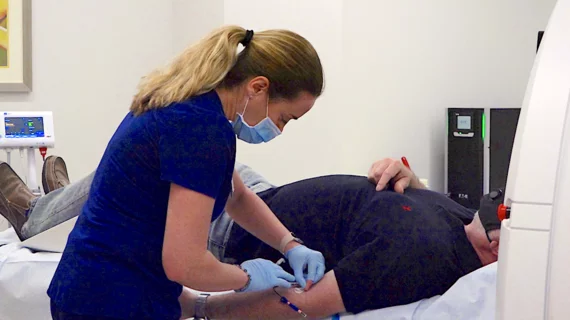Nuclear Regulatory Commission to reconsider extravasation reporting requirements
The Nuclear Regulatory Commission recently announced that policies surrounding the reporting of nuclear medicine injection extravasations are being revisited.
The ruling was issued in late December. As part of that ruling, the NRC will be proceeding with the rulemaking process regarding the reporting of large extravasations. In the proposed rule, available on the Federal Register, the NRC noted that advancements in nuclear medicine and increased use of radiopharmaceuticals prompted the commission to reconsider the exclusion of extravasation from medical event reporting.
Although the NRC described the incidence of significant extravasations as “rare,” the organization acknowledged that these events merit further investigation as they can cause unintended harm to patients.
“The radiation safety impact of some extravasations can be severe enough to warrant regulatory action, and reporting and tracking these incidents is of interest to the NRC,” the ruling reads.
As it stands, extravasation of diagnostic injections is currently exempt from medical event reporting. When policies pertaining to the reporting of medical "misadministrations" (later changed to “medical events”) were formed in 1980, the commission noted that extravasations should not be considered misadministrations because they occurred frequently and were “virtually impossible to avoid.”
That ruling has since been updated a number of times, but until now, the extravasation exemption had not been addressed.
The NRC’s decision to reconsider reporting requirements follows a petition the commission received in 2020. Filed by Ronald K. Lattanze on behalf of Lucerno Dynamics, LLC, the purpose of the petition was to request that the NRC amend its “Medical Use of Byproduct Material” regulations to include a reporting requirement for nuclear medicine injection extravasations.
Patients for Safer Nuclear Medicine—a patient advocacy group of more than 30 non-profit organizations that was formed to promote safety and transparency in nuclear medicine—applauded the NRC's move to revisit their requirements, as the group has been petitioning to close the extravasation reporting “loophole” for some time.
“It is obvious that current policy is woefully out of date. Extravasation reporting will encourage providers to proactively deploy quality improvement programs aimed at prevention while also increasing transparency,” Mary Ajango, spokesperson for Patients for Safer Nuclear Medicine, said in prepared remarks.
There is no word yet on the specifics of the proposed changes or when they might go into effect.
For more information, click here.

